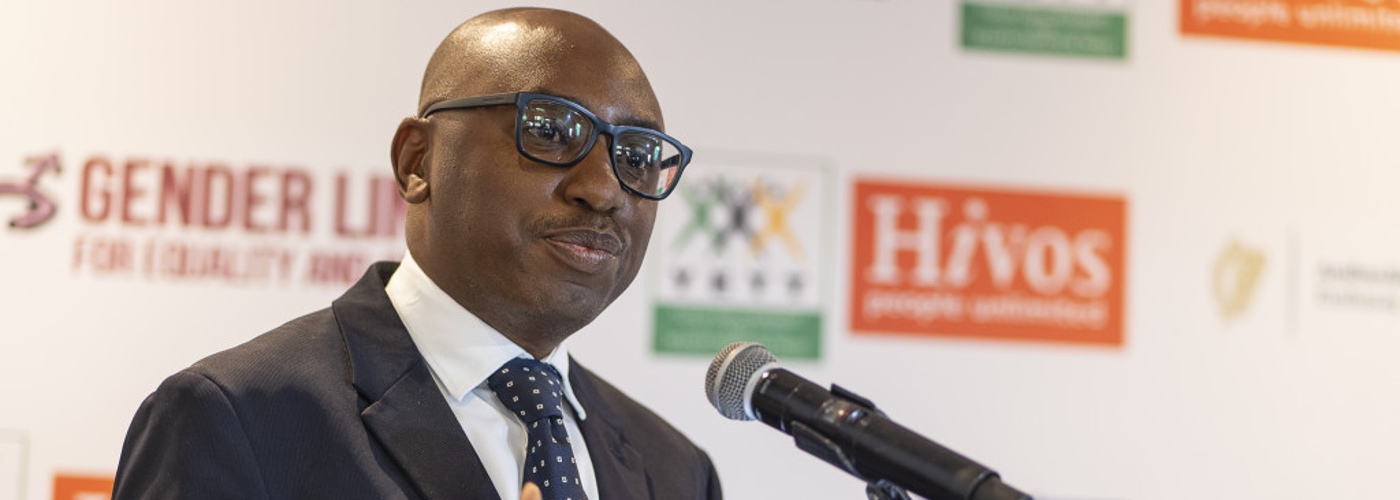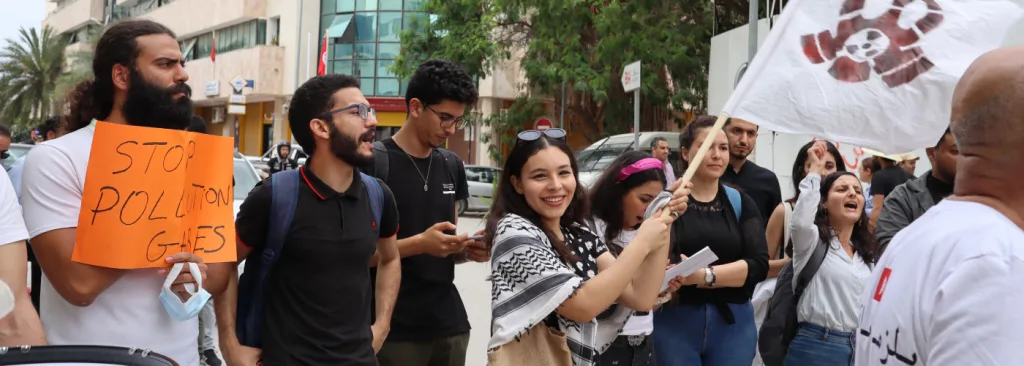By Kennedy Mugochi, Regional Director of Hivos Southern Africa
In June 2022, I had the pleasure of participating in a meeting on climate justice in Zambia attended by both climate justice experts and traditional leaders. It provided a unique window into how a global development agenda like climate justice plays out at local level and how we need to localize development agendas and decolonize aid.
During the meeting, I engaged with Chieftainess Mupanshya, Chief Bunda Bunda, Chieftainess Chibaya and Chieftainess Muwezwa. The meeting was part of a broader program called Voices for Just Climate Action (VCA) that Hivos is implementing in a consortium with World Wide Fund for Nature (WWF), Slum Dwellers International (SDI), South South North (SSN) and Akina Mama Wa Afrika (AMwA). The VCA program has a bold ambition. It aims to ensure that by 2025, local civil society and underrepresented groups will have taken on a central role as creators, facilitators and advocates of innovative climate solutions.
Climate change is a major global concern
Experts warn that “climate change has given rise to many existential threats, including a rise in global temperatures, melting of glaciers and polar ice caps, increment in sea level, loss of biodiversity, extreme weather events, and an outbreak of uncountable diseases.” Hence urgent action must be taken to avoid disastrous consequences in the near and long-term future.
Many stakeholders – governments, multilateral institutions, international and local NGOs – are currently involved in initiatives meant to address the climate crisis. These initiatives range in scope and approaches from mitigation to adaptation. Some deploy educational and awareness raising strategies, while others use lobby and advocacy. Programming is both at local and international levels.
The climate justice approach
Hivos believes that climate change is essentially a human rights issue because of its devastating effect on human life – and rights. And because the greatest burden of climate change falls on those already in poverty and on underrepresented groups such as Indigenous peoples, the rural and urban poor, and women and youth, although they are the least responsible for climate change.
In light of this, any effective and lasting response to this crisis will have to include the voices of local communities and take an ethical and human rights approach, i.e. a climate justice approach to the crisis.
The fruitful discussions at the meeting and my conversations with the traditional leaders taught me the following three important lessons.
Firstly
The ability of traditional leaders in Africa to advance a rights and justice agenda has often been viewed by NGOs with scepticism. This is because traditional leadership is perceived as a bulwark of traditional practices and beliefs that are “in conflict” with human rights and civil liberties. Furthermore, these leaders have been used by politicians as “gatekeepers,” making it difficult for NGOs to directly engage citizens, particularly those who live in rural areas, unless they go through traditional leaders.
Traditional leaders can play a broader role in localizing the development agenda.
However, from what I saw at the meeting, the institution of traditional leadership has evolved over time and is part of modern Africa. The traditional leaders I met in Zambia have a clear developmental agenda at heart and are willing to advance it. To this end, traditional leaders can play a broader role in localizing the development agenda.
Specifically, on climate justice, traditional leaders can promote local voices that can be further amplified at the global level. They can even represent those voices at the global level themselves. In fact, Her Royal Highness Chieftainess Muwezwa of the Ila People of Southern Province in Zambia attended the UN Conference on Climate Change (COP26) in Glasgow in October of 2021. She spoke about strengthening local voices in policy making and ensuring local solutions are taken into account by climate action at all levels.
Another important lesson
This is about “who sets the agenda.” Professor Robert Chambers, whose work deals with issues of knowledge, power and prejudice and the interface between “outsiders” and local people, shared important lessons on agenda and priority setting in the 1980s. Although the focus was on understanding poverty in rural settings then, his emphasis on the need to value local knowledge is equally applicable to climate justice today.
It is imperative therefore to acknowledge and meaningfully consult local communities when designing responses or programs. With development funding dwindling, the temptation is to design a response fast. But genuine consultations with all stakeholders involved are important to ensure the agenda is jointly crafted and understood by all parties, and to pave the way for effective implementation.
The last lesson
I learned that traditional knowledge systems, languages and beliefs play a major role in interpreting the existential threats presented by climate change.
Language, concepts and terminology are all critical for any appropriate response to a developmental issue at local level. It is not always easy to find terms to express “climate change” and “climate justice” in local languages, but it’s important if local voices are to find their way onto the global stage. Furthermore, local belief systems also come into play when looking at the causes of climate change, and by extension, both mitigation and adaption responses to the crisis.
According to one of the chieftainesses, some local people believe that the reason we have climate change and its negative consequences is because modern lifestyles and practices have angered the “gods.” While this may not be a widely shared understanding of the causes of climate change, it demonstrates how stakeholders have to carefully navigate traditional knowledge and belief systems in global climate justice programming. And traditional leaders can play a key role here. And we should remember that different interpretations of the causes of climate change are to be found everywhere.
Local communities are essential
In conclusion, if we are to shift power and genuinely localize development, we need to allow local communities to interpret developmental agendas on and responses to climate change based on traditional knowledge and belief systems, cultural practices, and local languages.
The climate crisis is a global crisis and therefore requires both international and local stakeholders. However, for a lasting, effective and sustainable fight against climate change, local voices are essential and should find their way onto the global stage. This is what climate justice is about, and traditional leaders can play a critical role in making it happen.
This piece was originally published in the Zambia Daily Mail


